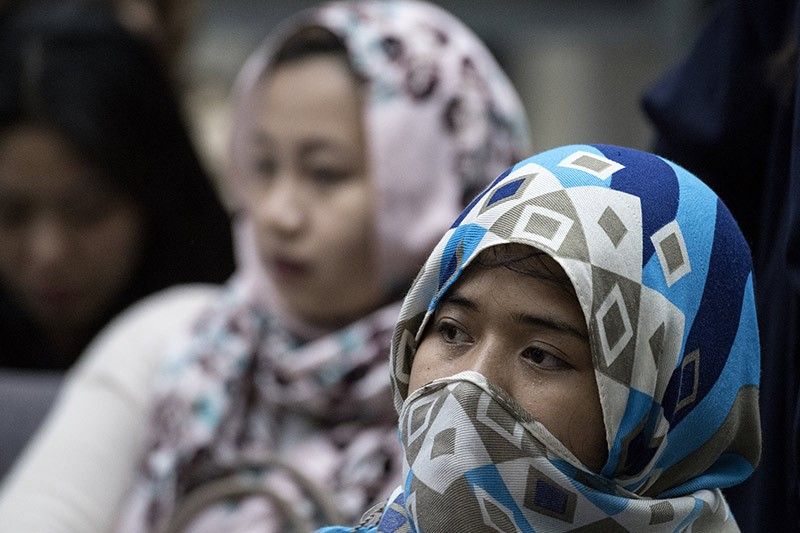Nomura: Remittances may take a hit from Kuwait deployment ban

Stronger peso in the short term
MANILA, Philippines — A permanent ban on the deployment of Filipino workers to Kuwait may affect remittances in the medium-term, with dollars flowing out of the economy in the last 12 months, analysts at financial services group Nomura said.
In February, President Rodrigo Duterte repeatedly lashed out at Kuwait and barred Filipinos from seeking work in the oil-rich Arab nation after a Filipina worker was found dead inside a freezer in an abandoned home.
But as diplomatic tensions rise, Duterte last week said the ban on sending workers to Kuwait remains. He urged Filipino expats to come home.
In a report released Thursday, Nomura said Duterte’s threats could help strengthen the peso in the short term, citing the “significantly less than expected” surge in remittances should workers decide to come home as returning migrant workers typically have little savings left.
'Limited' impact on remittances
But Nomura said a permanent ban may hurt remittances in the medium term, although such an impact would be “limited” as Filipino workers in Kuwait may seek employment elsewhere.
“Opportunities in the rest of the Middle East should provide some buffer to departures from Kuwait, if they occur,” Nomura said.
The World Bank early this week reported that the Philippines is the third largest remittance receiving nation in the world in 2017, helping drive the increase in domestic spending which, in turn, fuels overall economic growth.
Remittances likewise help the country’s current account swing to a surplus, which is a key pillar of support for the local currency and an important indicator of the economy’s health.
However, a widening trade gap has brought the nation’s current account position from a surplus to a deficit, which is expected to further swell and weaken the peso.
In the first quarter, the amount of dollars that left the economy breached the deficit target set by the central bank for this year. If the outflows persist, it may result in the depletion of the country’s foreign exchange buffer that serves as protection against external shocks.
Remittances from Kuwait totaled $790 million, or 2.8 percent of total, in the past 12 months. Based on a 2017 survey, overseas Filipino workers in Kuwait number around 154,000, or 6.7 percent of the overall 2.3 million workers.
“We believe Bangko Sentral ng Pilipinas’ monetary policy stance has yet to become fully supportive of the peso,” Nomura said.
“This could change, however, if there is a 25bp rate hike and a clear tightening stance at the 10 May monetary policy meeting,” it added.
- Latest
- Trending
























